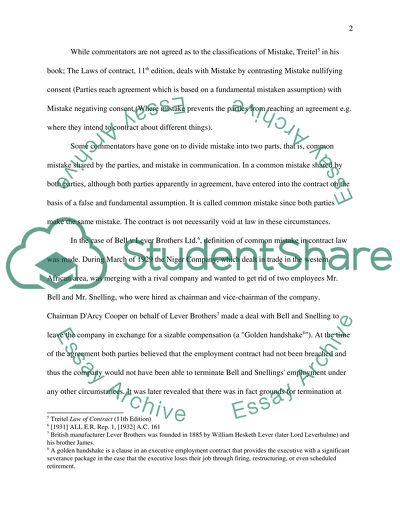Cite this document
(“Doctrine of Mistake in Common Law Case Study Example | Topics and Well Written Essays - 1750 words”, n.d.)
Doctrine of Mistake in Common Law Case Study Example | Topics and Well Written Essays - 1750 words. Retrieved from https://studentshare.org/law/1524872-doctrine-of-mistake-in-common-law
Doctrine of Mistake in Common Law Case Study Example | Topics and Well Written Essays - 1750 words. Retrieved from https://studentshare.org/law/1524872-doctrine-of-mistake-in-common-law
(Doctrine of Mistake in Common Law Case Study Example | Topics and Well Written Essays - 1750 Words)
Doctrine of Mistake in Common Law Case Study Example | Topics and Well Written Essays - 1750 Words. https://studentshare.org/law/1524872-doctrine-of-mistake-in-common-law.
Doctrine of Mistake in Common Law Case Study Example | Topics and Well Written Essays - 1750 Words. https://studentshare.org/law/1524872-doctrine-of-mistake-in-common-law.
“Doctrine of Mistake in Common Law Case Study Example | Topics and Well Written Essays - 1750 Words”, n.d. https://studentshare.org/law/1524872-doctrine-of-mistake-in-common-law.


